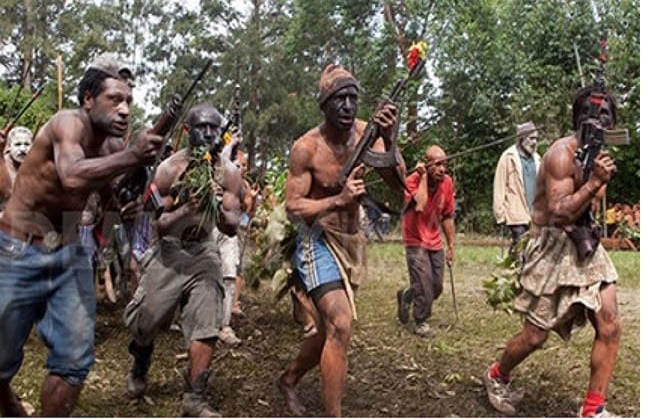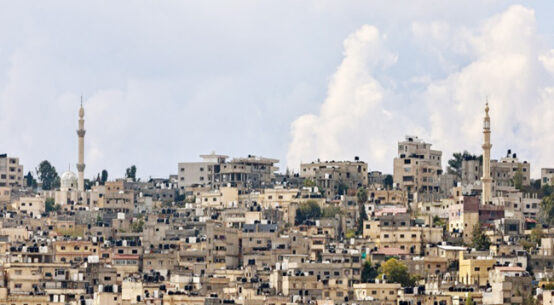
Canadian mining firm Barrick said Tuesday that operations at a vast Papua New Guinea gold mine were suspended after tribal violence in the area killed 32 people.
The Porgera mine “has suspended the majority of its operations until 19 September” a company statement said.
Days of shootouts between hundreds of tribal warriors have left at least 32 people dead near the mine, which is located in Papua New Guinea’s highlands.
Barrick said the temporary closure was taken for “the protection of its employees while the government restores law and order in the surrounding region”.
The firm added that: “Most of the mine’s workforce is from the local community.”
A state of emergency has been declared, giving security forces special powers to quell the violence.
Police Commissioner David Manning said “lethal force” would be used to restore order in the hard-to-reach highlands region.
Alcohol sales have been banned and an overnight curfew is in place.
The Porgera gold mine once accounted for around 10 percent of Papua New Guinea’s yearly export earnings.
But recurrent flare-ups of tribal violence have frequently slowed production.
Police said 30 men have been killed across rival clans in recent days, and hundreds of women and children displaced, with many homes burned to the ground.
Two mine officials were also killed while waiting for a lift home after work.
Barrick expressed “deep regret” that “two of its off-duty employees have been killed in the offsite violence, which is not related to the mine and its activities.”
Tribal conflicts are a frequent occurrence in Papua New Guinea’s highlands, but an influx of automatic weapons has made clashes deadlier.
The latest fighting had been turbocharged by the presence of more than “100 high-powered weapons in the wrong hands”, police said.
Security teams have been posted along the highway leading to the mine, using loudhailers to broadcast messages of peace.
Two officials were also killed while waiting for a lift home after work, said Tondop.
Police Commissioner David Manning said “lethal force” would be used to restore order in the hard-toreach highlands region.
“Put simply, this means if you raise a weapon in a public place or to threaten another person, you will be shot,” Manning said in a statement at the weekend.
“This deteriorating situation has been caused by illegal miners and illegal settlers who are victimising traditional landowners and using violence to terrorise local communities.”
Police said illegal miners from the Sakar clan had been squatting on land owned by their Piande rivals.
Alcohol sales have been banned and an overnight curfew is in place, added Manning, who vowed to remove the artisanal miners from the valley.
Tribal conflicts are a frequent occurrence in Papua New Guinea’s highlands, but an influx of automatic weapons has made clashes deadlier.
The latest burst of fighting had been turbocharged by the presence of more than “100 high-powered weapons in the wrong hands”, police said.
Security teams have been posted along the highway leading to the mine, using loudhailers to broadcast messages of peace.
The Porgera gold mine once accounted for around 10 percent of Papua New Guinea’s yearly export earnings.
But recurrent flare-ups of tribal violence and a drawn out government takeover have slowed production in recent years.
Gunfights between rival clans living near the mine killed at least 17 in 2022.
And at least 26 people were killed, including 16 children, when three villages in East Sepik province were attacked earlier this year.
Pope Francis urged Papua New Guinea to “stop the spiral” of violence during a visit earlier this month.
“It is my particular hope that tribal violence will come to an end,” he said.
“It causes many victims, prevents people from living in peace and hinders development.”


